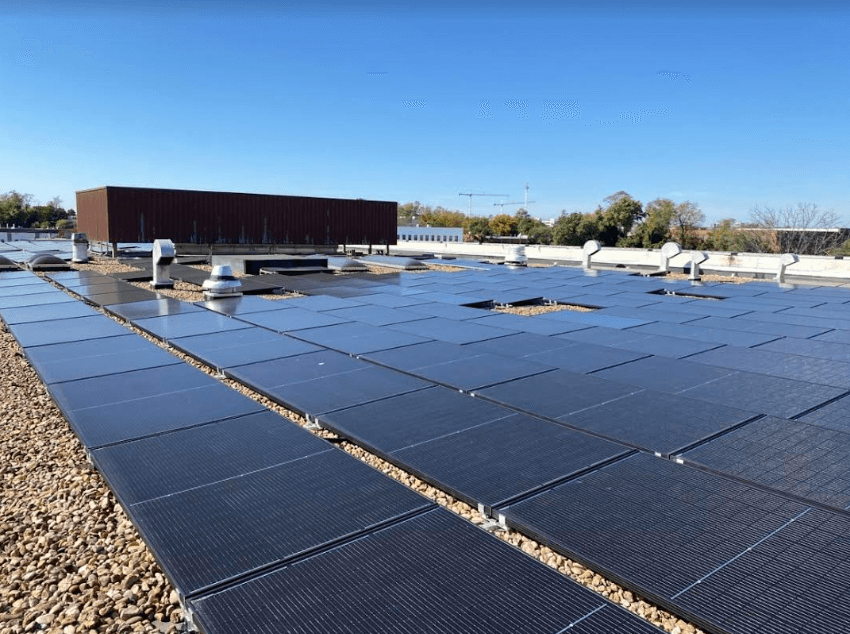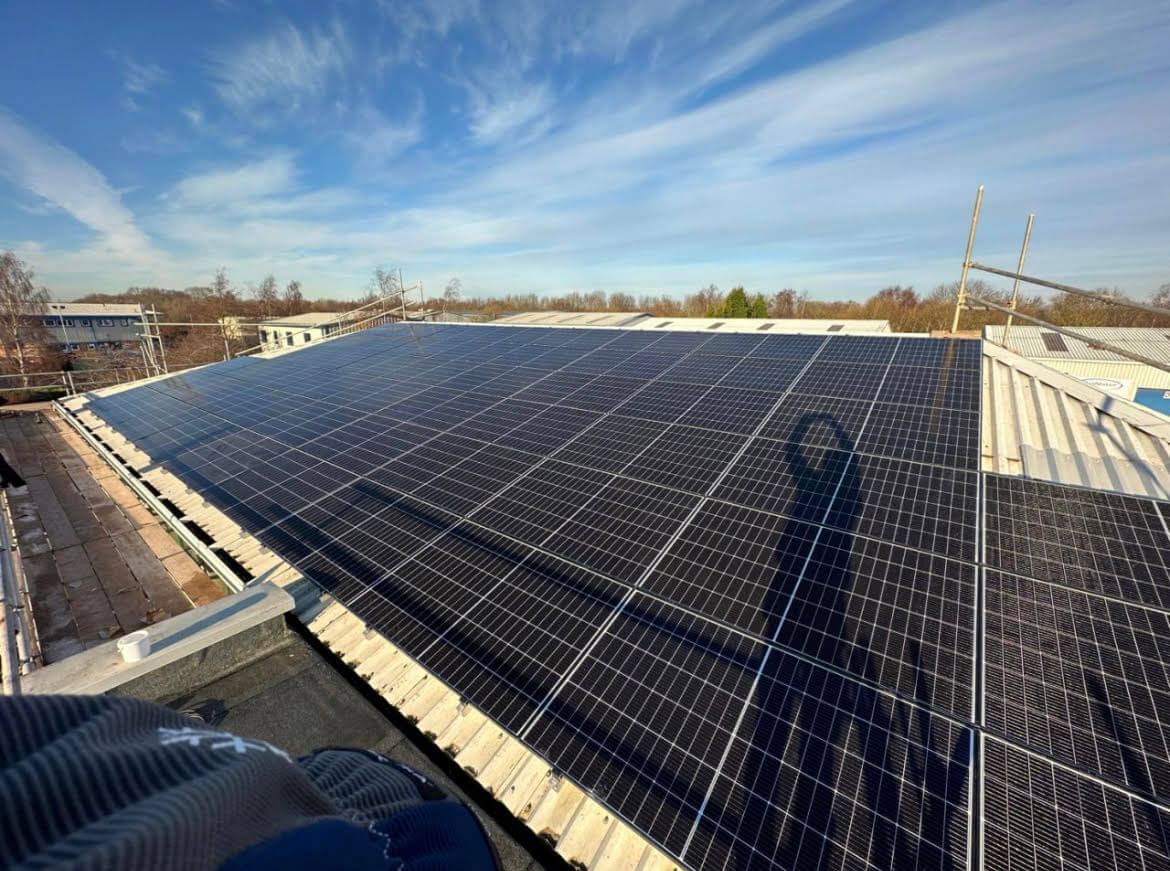Commercial Solar In Virginia.
Are you a business owner in Virginia looking for ways to reduce your utility costs? Do you want to take advantage of renewable energy sources without breaking the bank? If so, then you’ll want to read this commercial solar blog post about commercial solar systems here in the commonwealth of Virginia. We’ll discuss installing a commercial solar system in your business in Virginia, as well as what types of systems are available and how much they cost. So if you’re business is ready to make the switch to solar energy, let’s get started!

Introduction to Commercial Solar Systems
Commercial solar systems are photovoltaic (PV) systems that use the sun’s energy to generate electricity. These systems are used by businesses, non-profits, government agencies, and other entities to reduce their energy costs and carbon footprint. Commercial solar systems are typically larger than residential systems and can range in size from 10 kilowatts to megawatts. They can power one or multiple buildings, provide backup power during outages, or supply energy to the grid. Installation of a commercial solar system requires an analysis of the energy consumption patterns of the building, an assessment of the site’s solar potential, and a financial analysis to determine the most cost effective system.
Advantages of Installing a Commercial Solar System
Installing a commercial solar system for your business can provide a number of benefits. These include cost savings, environmental benefits, and economic benefits. Solar energy is a renewable energy source that can be used to power your business and save money on electricity costs. Solar energy is also more reliable than other forms of energy, and it provides protection against rising utility rates. Additionally, installing solar panels can help boost the local economy by leveraging the services of local solar companies like Syntek solar. With payback often happening in 3 to 4 years, businesses often save considerably on electricity bills each month because solar energy is cheaper than utility and grid power. Finally, commercial solar systems increase resilience with fortified access to power, and meet sustainability goals for businesses looking to reduce their carbon footprint.
Types of Commercial Solar Systems
When it comes to commercial solar, there are several types of solar power systems available. Grid tied, off grid and hybrid are the three main options. Grid tied systems are connected to the utility grid, allowing businesses to take advantage of net metering and to also use the grid as a backup should their commercial solar system not generate enough power. Off Grid systems are completely independent of the utility grid, relying solely on their own solar generation capabilities. Hybrid systems are a combination of grid tied and off grid, allowing businesses to maximize their solar output while still having access to the utility grid.
Solar Electric Supply (SES) offers custom solar panel grid-tie power systems for commercial buildings using our commercial solar products and components. There are 4 major types of solar panels available on the market today: monocrystalline, polycrystalline, PERC, and thin-film panels. Monocrystalline offer the highest efficiency in residential and small commercial solar systems, while polycrystalline are more affordable and suitable for larger installations. PERC (Passivated Emitter Rear Contact) panels are a type of monocrystalline technology that offer higher efficiency than conventional monocrystalline cells. Lastly, thin-film panels are becoming increasingly popular due to their light weight and flexible form factors.
When it comes to installation, businesses have three main options: roof-mounted, ground-mounted and parking canopy systems. Roof-mounted systems require fastening the panels directly
Financial Benefits of Installing a Solar System
Installing solar panels for your business can provide a variety of financial benefits. Solar energy is often more cost-effective than other forms of energy, and can drastically reduce your operating costs. Depending on where you are located and the size of your system, you may be eligible for incentives and tax credits on the purchase of your system. The new Federal Inflation Reduction Act more commonly known as the solar tax credit – is equal to 30% of the installation cost and can be claimed in the year following installation. Businesses can also depreciate 85% of the initial solar expenditure over six years. Additionally, solar energy can help to reduce or even eliminate your office building’s electric bill, resulting in significant long-term savings.

The Process of Installing a Commercial Solar System
Installing a commercial solar system requires careful planning, preparation and understanding of local regulations. Hiring Syntek Solar professionals in Virginia ensures that your project is completed safely and efficiently. The process of installation includes the following steps:
- Site Evaluation: A site evaluation is conducted to assess your property and its suitability for solar energy production. This includes looking at factors such as roof orientation, roof angle, shading, and nearby obstacles.
- System Design: Once the site is evaluated, Our commercial solay system designers will create a design that takes into account the location and size of the solar array. This entails making calculations to determine the optimal size of the system, angle of the panels, and other technical aspects.
- Construction: The installation of a solar system typically begins with the construction of a mounting structure to hold the panels in place. This can involve drilling into the roof or setting up a ground-based structure.
- Commissioning: After the solar array is installed, Our certified solar master electrician will commission the system, which involves connecting it to the grid and testing its functionality.
- System Operation and Maintenance: Finally, your system needs to be regularly monitored and maintained to ensure it continues to produce energy efficiently for years to come. This includes Syntek solar to check for any damage or malfunctioning components as well as cleaning the panels.
Evaluating Potential Locations for your Panels
When it comes to commercial solar energy systems, the installation location is an important factor to consider. Solar panels require an area with adequate sunlight in order to optimally perform, so it is essential to assess whether the property offers this. Additionally, it is important to consider how the installation of the system might interfere with existing structures or communication systems, as well as any potential reflectivity issues that could arise. Syntek Solar’s Software can be used to help evaluate potential locations and estimate the size of the system, ensuring that you make the most out of your investment in solar energy.
Calculating the Optimal Size for your System
When it comes to sizing your commercial solar system, the process begins with calculating your daily energy usage. This can be done by taking your monthly kWh consumption and dividing it by 30 to determine your daily needs. Once you have this figure, you can then begin to analyze the size of your system based on your annual energy usage. It’s important to keep in mind that the size of a solar power system is expressed in kilowatts (kW). A watt is a basic measure of electrical power and is calculated by multiplying the voltage by the current. With this information in hand, you can then calculate the number of solar panels needed to meet your energy requirements. This can be done by dividing your daily kWh energy requirement by your peak sun hours to get the kW output, and then dividing the kW output by your panel’s efficiency to get the estimated number of panels you’ll need for your system.
Choosing an Installer and Contractor for your Project
When it comes to installing a commercial solar system, choosing Syntek Solar as your Commercial Solar installer and contractor makes the process super easy to switch to solar. Not only will Syntek solar be responsible for the actual installation process, but our solar professinals have the necessary qualifications and experience to ensure the job is done correctly..
First and foremost,Syntek has all the necessary Solar licenses and renewable energy certifications. These include a master electrician to connect the system as well as a NABCEP panel installation certificates North American Board of Certified Energy Practitioners (NABCEP).
Finally, The cost of installation can vary wildly depending on factors such as the size of the system, the number of solar panels needed, and the complexity of the job. Lastly, Our commercial division will guide you through the entire process.
